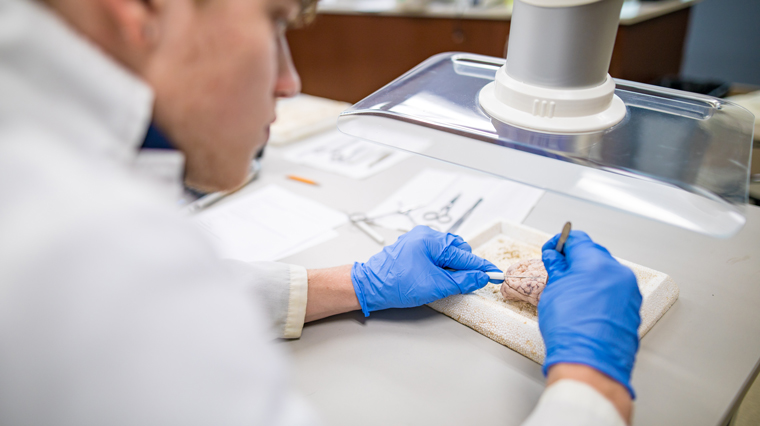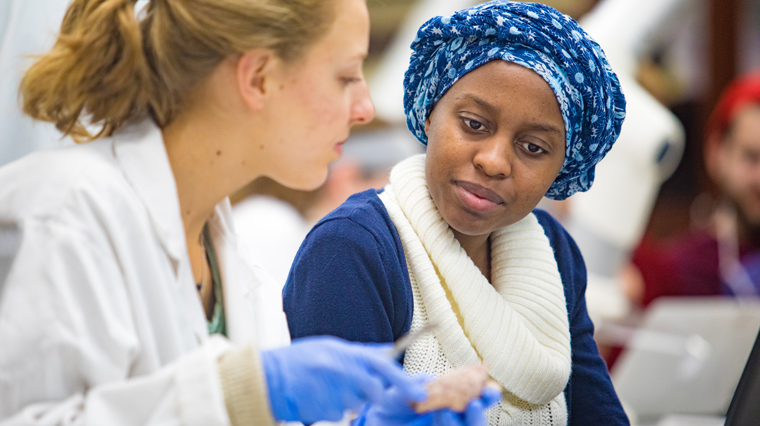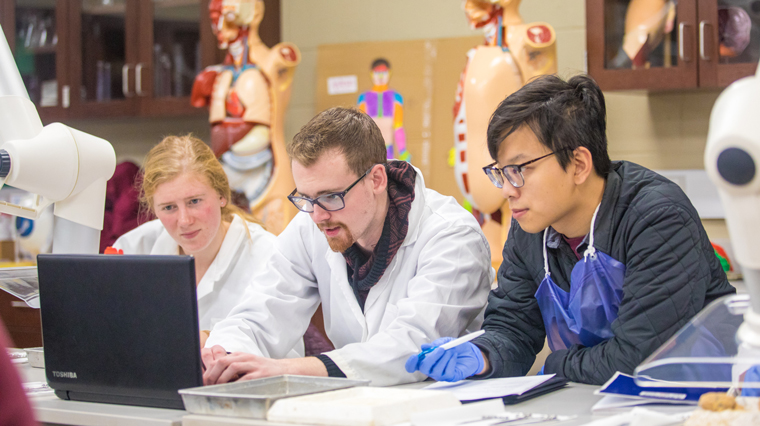Neuroscience minor
EMU students with a neuroscience minor are mentored by professors in both the biology and psychology departments.
Neuroscience is an interdisciplinary field, and studying the brain (and the rest of the nervous system) is one way to better understand human behavior. Neuroscientists study everything from the function of individual neurons to how broad patterns of brain activity relate to thoughts, feelings and behaviors.
Neuroscience has experienced rapid growth in recent decades in part because its findings apply to many different domains, including medicine, psychotherapy, education and even law enforcement, among others.
Neuroscience minor curriculum
Multiple disciplines have begun to incorporate neuroscientific methods to better understand human behavior (e.g., cognitive neuroscience, neuroeconomics, etc.). A minor in neuroscience will help prepare students for graduate studies in the neurosciences, as well as help students to be savvy consumers in careers advocating "brain-based" practices.
Required courses (18-21 SH)
*BIOL 478 Advanced Neurobiology (3 SH)
PSYC 101 General Psychology (3 SH)
PSYC 331 Abnormal Psychology (3 SH)
*PSYC/BIOL 451 Neuropsychology (3 SH)
PSYC499 Research in a Neuroscience Topic) (2)
Choose one course from this list:
BIOL 447 Advanced Human Physiology (4 SH)
PSYC 342 Cognitive Psychology (3 SH)
Choose one course from this list:
BIOL 255 Biology Research Seminar (1 SH)
PSYC 312 Psychological Design and Analysis (4 SH)
* Indicates courses offered in alternate years
Career and Graduate School options
The addition of a neuroscience minor will help make students more appealing applicants to virtually all graduate programs in psychology. Professional studies in medicine, physical therapy, and dentistry also include heavy components of neuroscience in their curricula, so we also anticipate that a neuroscience minor will make students more competitive for these programs as well.








